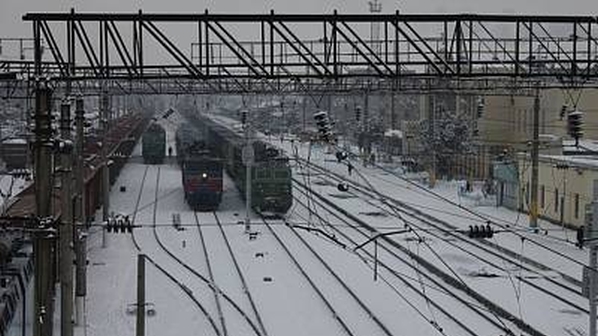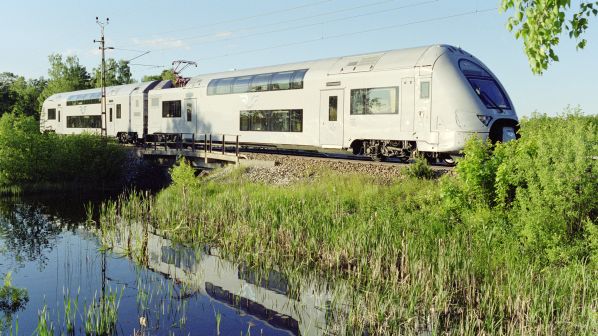Sweden: Swedish national operator SJ has reported a loss for 2020 of SKr 1.49bn ($US 178.9m), compared with a profit of SKr 619m in 2019. Net sales fell to SKr 5.5bn in 2020, from SKr 8.6bn in 2019. This resulted in a -41.5% return on operating capital for the year, compared with a 16.2% return for the previous year. The primary cause of the downturn was the Covid-19 pandemic, which heavily impacted passenger numbers following a promising first quarter. Although travel recovered slightly in the summer, new restrictions from the autumn onwards again caused demand to fall.
Germany: Siemens Mobility has reported a 65% rise in orders for the first quarter of 2021, to a total value of €2.74bn, compared with €1.67bn for the first quarter of 2020. The manufacturer has also reported an increase in revenue to €2.19bn for the first quarter of 2021, compared with €2.18bn for the same period in 2020, due to the successful execution of contracts from the backlog. Ebitda for the first quarter remains equal to that of Q1 2020, at €219m, despite the impact of ongoing Covid-19-related measures.
Denmark: Danish State Railways (DSB) has reported a pre-tax loss of DKr 104m ($US 16.9m) for 2020, partially offset by government support worth DKr 914m. This result was primarily due to a 36% year-on-year fall in passenger revenue, from DKr 187.2m in 2019 to Dkr 120m in 2020. In response, DSB has implemented cost-reduction strategies to save approximately DKr 180m for the year. The operator was severely impacted following the start of the pandemic but recovered slightly in the summer. Following the start of the second wave, however, DSB suffered further losses.
France: Alstom reported a level order intake of €4.5bn for the first nine months of the 2020-21 fiscal year (April 1 to December 31), including €1.8bn in the third quarter, compared with €3.6bn during the same period in 2019-20. Europe accounted for the majority of orders, in particular the €470m contract for the Toulouse Metro. The company has reported a sustained record order backlog of €40.1m.
Sales of €5.6bn were reported for the first three quarters, in line with the company’s targeted trajectory, including sales worth €2.05bn for the third quarter of 2020-21, down only slightly compared with €2.06bn in the second quarter of 2019-20. Alstom forecasts a strong pick-up in demand in the final quarter, provided that no further negative impact is felt due to the Covid-19 pandemic.

Kazakhstan: Kazakhstan Railways (KTZ) reported a year-on-year increase in freight turnover of 3.5% in 2020, amounting to 231 billion tonne-km. Transit freight turnover alone amounted to over than 39 billion tonne-km, up 19.4% compared with 2019. Transit freight carried 876,000 TEUs on the network last year, up 31.8% compared with 2019.
With the support of the Kazakhstani government and the Samruk-Kazyana fund, KTZ introduced measures to reduce its debt burden, with liabilities falling from 57% at the start of 2019 to 34% by the end of 2020. KTZ says it will continue to improve its financial stability and operations efficiency through further increases to traffic volumes and production efficiency, modernisation of infrastructure, and the implementation of digital programmes.
Hungary: Rail freight operator Rail Cargo Hungary (RCH) has acquired 100% ownership of Miskoc-based rail rolling stock services firm Technical Services Hungary (TS Hungary), purchasing the company from sister company, Austrian Federal Railways (ÖBB) subsidiary Rail Cargo Austria. The company, which handles the refurbishment or reconstruction of 1400 freight wagons and more than 12,000 wheelsets annually, will support RCH’s ambitions to improve its repair and maintenance service offering.
Singapore: Transport operator SBS Transit has reported a 2.9% fall in year-on-year earnings for 2020 to $S 79m ($US 59.5m), as a result of the Covid-19 pandemic. The results were partly offset by government relief. Without support, the operator says that it would have posted an operating loss of $S 29.8m in 2020, down from an operating profit of $S 103.5m for 2019. Revenue fell by 14.8% to $S 1.23bn in 2020, driven by low ridership, with reduced fuel and energy costs mitigating some of the impact. Ridership on the Downtown Line fell by 46%, the North East Line by 40.9%, , and the Sengkang-Punggol LRT by 31.2%. Higher revenue is forecast for 2021. However, some uncertainty remains due to the pandemic.
Ukraine: Ukrainian Railways (UZ) has signed a memorandum of understanding (MoU) with Italian State Railways (FS) to explore potential collaborations, including joint training and consultation, as well as the development of new technological solutions for rail vehicles and infrastructure, particularly related to high-speed projects.

